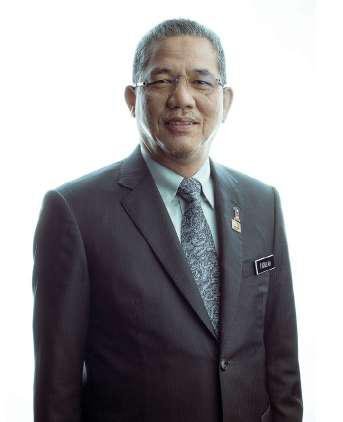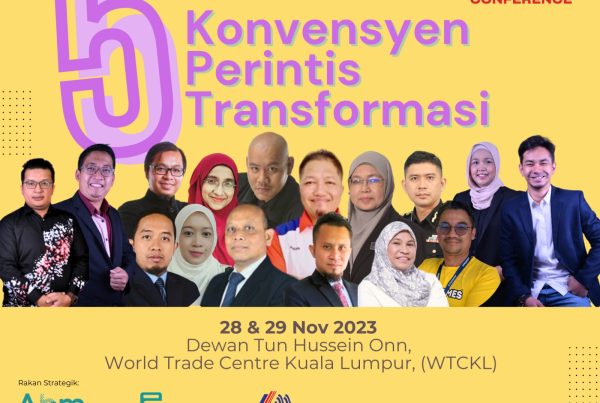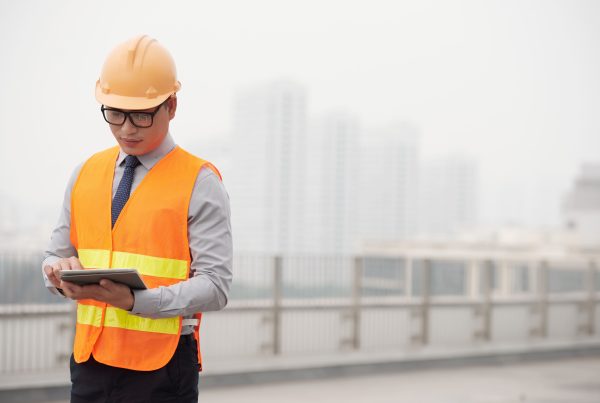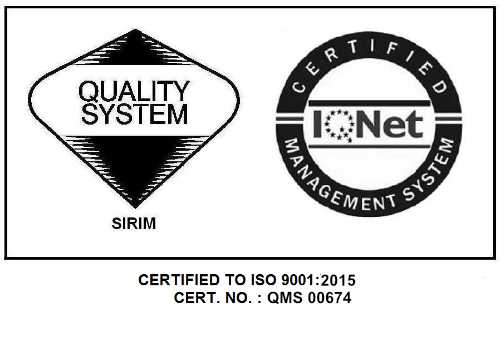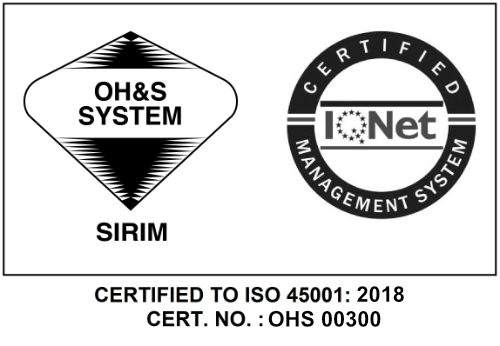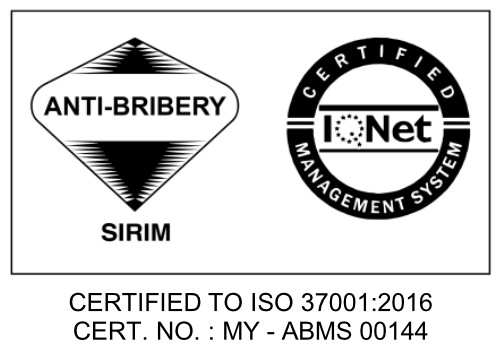This year’s ICW 2020 is a landmark occasion that construction industry players will remember for a long time.
The Covid-19 pandemic may have wreaked havoc in every aspect of life as we know it. But thanks to the marvels of technology and digital innovation, and resilience of the organisers and participants, the show can still go on.
The International Construction Week 2020 (ICW 2020) and ASEAN Super 8 Virtual Connect, which were initially scheduled to take place earlier this year, were held on 17 to 19 November 2020 on a totally virtual platform for the first time in 22 years. Organised by CIDB Malaysia in collaboration with the Ministry of Works Malaysia (KKR), ICW2020 and ASEAN Super8, the events are aimed to provide a forum to encourage discussions among digital construction leaders in order to revolutionise the industry.
Aptly themed ‘Embracing Construction Revolution’, ICW 2020 will equip the construction sector with the right technologies and reduce reliance on low-skilled labour with low productivity, as emphasised by Senior Minister of Works Dato’ Sri Haji Fadillah Haji Yusof in his opening speech when officiating the event.
Thirty exhibitors showcased their products, technologies and shared their industry best practices in ASEAN Super 8 Virtual Connect, which was held simultaneously with ICW 2020. CIDB Malaysia with its subsidiaries, namely, CIDB Holdings, CIDB Technologies Sdn Bhd, ABM, CIDB E-Construction Services Sdn Bhd, CREAM, Construction Labour Exchange Centre Berhad and CIDB IBS Sdn Bhd, occupied a dedicated CIDB Pavilion there.
Touted as Southeast-Asia’s most exciting and extensive virtual exhibition for the built environment, ASEAN Super 8 Virtual Connect aspired to digitally connect global built environment industry players with real-time trade opportunities.

CR4.0 Conference 2020 — Maximizing Value Through Innovation
A significant component of the annual ICW, Construction Revolution 4.0 Conference 2020 (CR4.0 Conference 2020) offers a platform where all construction players can gather and network — albeit virtually this year.
“This is the new normal. Something none of us expected to see and experience in our lifetime. Technology has now taken its place at the forefront and centre of our lives, becoming the critical enabler. Embracing technology is no longer an option. We are to either embrace it, or be swept away by the rising tide,” Datuk Ir. Ahmad ‘Asri Abdul Hamid, Chief Executive, CIDB Malaysia said in his keynote address.
With the theme ‘Maximizing Value Through Innovation’, the virtual event aimed to introduce new digital technologies, experts who shared best practices in improving productivity and sustainability, and in redefining the skills and competencies needed to thrive in the construction industry. A variety of speakers from across the industry, ranging from industry players, regulators, and government agencies logged onto Zoom to share their experiences on Industrialised Building Systems (IBS), the game-changing National Building Information Modeling (BIM) e-Submission, and building and infrastructure technologies.
Datuk ‘Asri stressed that Construction 4.0 represents a new era of embracing digital technology in construction, including the Internet of Things (IoT), laser scanning, drones, artificial intelligence (AI), augmented reality (AR) and 3D printing.
“As part of our efforts to reduce dependency on low-skilled foreign labour, the construction industry must beef up on their practices by using more mechanization and digital technology in line with Construction 4.0. Only then can they attract the long-term employment of locals,” he added.
Boosting Productivity Levels with BIM and IBS
In the past, there has been a lot of resistance from construction industry players when it comes to embracing technology. As a result, the construction industry experienced a much lower productivity when compared to other economic sectors. According to the Malaysia Productivity Corporation (MPC), National Productivity Report 2020, construction productivity has also fallen below the country’s overall results.
The total labour productivity of Malaysia in 2019 was RM 93,973 per worker per year, up from RM 92,018 in 2018. Compared to RM44,000 in 2018, the productivity of the construction industry was RM45,300 per worker per year, which is a dismal number. While the construction industry grew year by year, it is still lagging behind other major economic sectors in the country.
“Under the Construction Industry Transformation Programme (CITP) 2016-2020, we set an ambitious goal to double the productivity rate in the construction industry in 2020 compared to the 2011 productivity of RM24,800. Even if we still have some ways to go to achieve that aim, we can see that attempts have been made to improve efficiency as a result of our continuous efforts to promote the use of the Industrialized Building System (IBS) and Building Knowledge Modeling (BIM),” Datuk ‘Asri reported.
To date, IBS adoption has increased dramatically from 69% in 2016 to 86% in 2019, in all government projects worth RM10 million or more. The IBS adoption rate rose from 14% in 2016 to 40% in 2019 for private projects worth RM50 million or more. “In the meantime, our studies revealed that BIM’s adoption rate has increased from 17% in 2016 to 49% in 2019,” he divulged.
In 2017, CIDB launched the National BIM e-submission (NBeS) as part of the CITP initiative. The NBeS Project seeks to digitise the specifications of the Uniform Building by-Law (UBBL) for a more reliable and efficient mechanism for the online building plan submission, review and approval. The NBES pilot project included five residential projects under four local authorities, each under Perbadanan Putrajaya, Majlis Perbandaran Kangar (MPK) and Majlis Bandaraya Melaka Bersejarah (MBMB), and two under Majlis Petaling Perbandaran Jaya (MBPJ). Prior to NBeS, it takes at least two weeks for a standard building plan to be checked. But with a 3D BIM model, the review process may take from one hour and a half to two-and-a-half days, depending on the model’s complexity. Thus, the NBeS initiative clearly illustrates how technology can contribute greatly to making business simpler.
Embracing the New Normal in Construction
The onset of the global Covid-19 pandemic threw a curveball on every industry, and the construction industry was not spared. Since April, the country’s borders have been closed and many illegal immigrants were deported to their home countries. As such, the supply of cheap unskilled foreign labour is a thing of the past, and the old working method of having a huge number of workers on construction sites is no longer feasible.
In addition, physical distancing needs to be maintained in construction sites, offices and dormitories as required by the Covid-19 Standard Operating Procedures (SOPs). This requires scheduling and constant monitoring to limit the number of people working at any one time. Also, all foreign workers in the Federal Territory of Kuala Lumpur and Putrajaya must undergo Covid-19 swab tests before they can be allowed to work at the construction site. If a positive case is detected, all other workers within the same vicinity must also be tested for Covid-19 and the construction site will be closed.
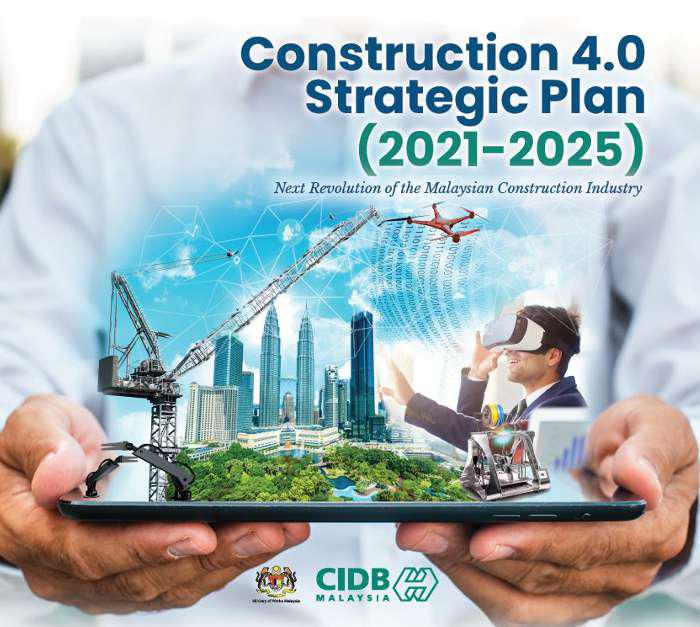
“This alone is costing a tremendous amount of time and money to the contractors and project owners,” Datuk ‘Asri surmised.
“On the other side of the coin, the pandemic has become the catalyst to speed up digital adoption in all Malaysian sectors, including construction. Some of the measures taken out of dire necessity during the lockdown have proven to bear long-lasting process improvements. Thus, it is likely that many of the changes implemented during the lockdown will become the new normal in the construction industry moving forward,” he observed.
Case in point is the use of digital project management tools, which has become critical in these times. “The digital platform allows project monitoring and status tracking, and scheduling of tasks to be done online. In addition, it can monitor and track resource allocation and budget as well as proper documentation and filing for easy reference,” said Datuk ‘Asri. “With information available on a digital platform at your fingertips, it is no longer necessary to have frequent faceto-face meetings.” “I hope that these changes brought about by the pandemic can open up opportunities for local skilled workers to gain employment in the construction industry,” he shared.
A vast number of people were laid off from work since the Movement Control Order (MCO). Therefore, there is no better time than now to implement a long-term plan for the construction industry to train and provide job opportunities for local workers.
“CIDB, through its subsidiary the Construction Labour Exchange (CLAB) is actively looking for placements of workers and youths who have been trained under various skills trade and have been accredited by CIDB. We welcome industry players to contact CLAB if they have vacancies to be filled,” Datuk ‘Asri said.
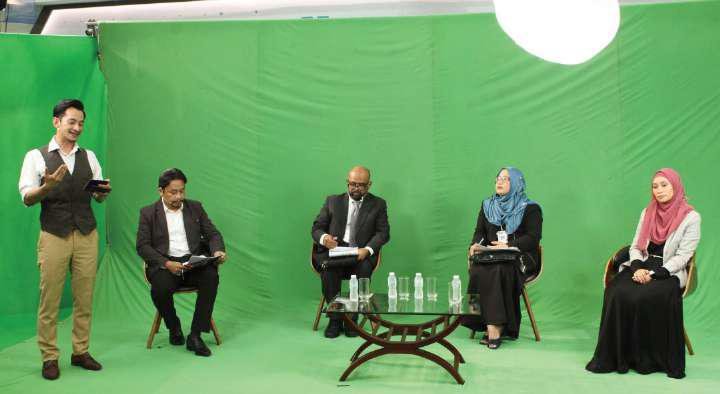
Construction 4.0 Strategic Plan 2021-2025
One highlight of the event was when Dato’ Sri Fadillah launched Construction 4.0 Strategic Plan 2021-2025. The five-year strategic CR4.0 plan promotes the use of emerging technologies to boost efficiency and the ease of doing business. The plan is a guide for government agencies, industry players and academia to respond to the rapid technological developments and identify the best approaches to using them for the betterment of the industry and nation. This will then propel Malaysia as one of Southeast Asia’s leading countries in implementing construction 4.0 technologies.
The four strategic thrusts of CR4.0 are:
- Capacity development
- Excellence in research, innovation, commercialisation and entrepreneurship
- Smart integrated technologies, innovation and infrastructure
- Enhanced business environment
Dato’ Sri Fadillah explained that the four strategic thrusts are supported by nine strategic objectives that comprise specific areas of focus to drive digital transformation in the industry.
That said, the initiatives and programs outlined in the strategic plan can only be successful through the four enablers, namely:
- People – Having the right people with the right skill sets is critical to achieve transformation
- Integrated technology – The adoption of new technology will enhance the career opportunities for the local workforce and reduce dependency on unskilled foreign labour. As such, a programme must be put in place to ensure that the local workforce in construction industry are trained in the utilization of new technologies. Second, technologies can no longer be applied in a silo as the digital solutions applied must be able to talk to each other and converge for optimisation and to support project implementation holistically.
- Governance – Strong government support is key in ensuring the success of the construction 4.0 strategic plan. New policies and regulations needs to be put in place and reviewed regularly.
- Economy – The adoption of digital technology is essential in improving business climates and ultimately, attract investments that will drive the country’s economy to greater heights.
Construction industry players will do well to take advantage of the available programmes to enhance adoption of the digital technologies in the work places.
“ICW 2020, ASEAN Super 8 Virtual Connect and the CR 4.0 conference are definitely good launchpads for the industry players to share knowledge on lessons learned and meet thinkers of the construction industry, which will shape the landscape and the way we operate in the future. I am optimistic that the discovery of the latest products and services network, and potential strategic collaboration forged in this historic occasion will lead to countless opportunities towards business enhancements,” Dato’ Sri Fadillah concluded.
